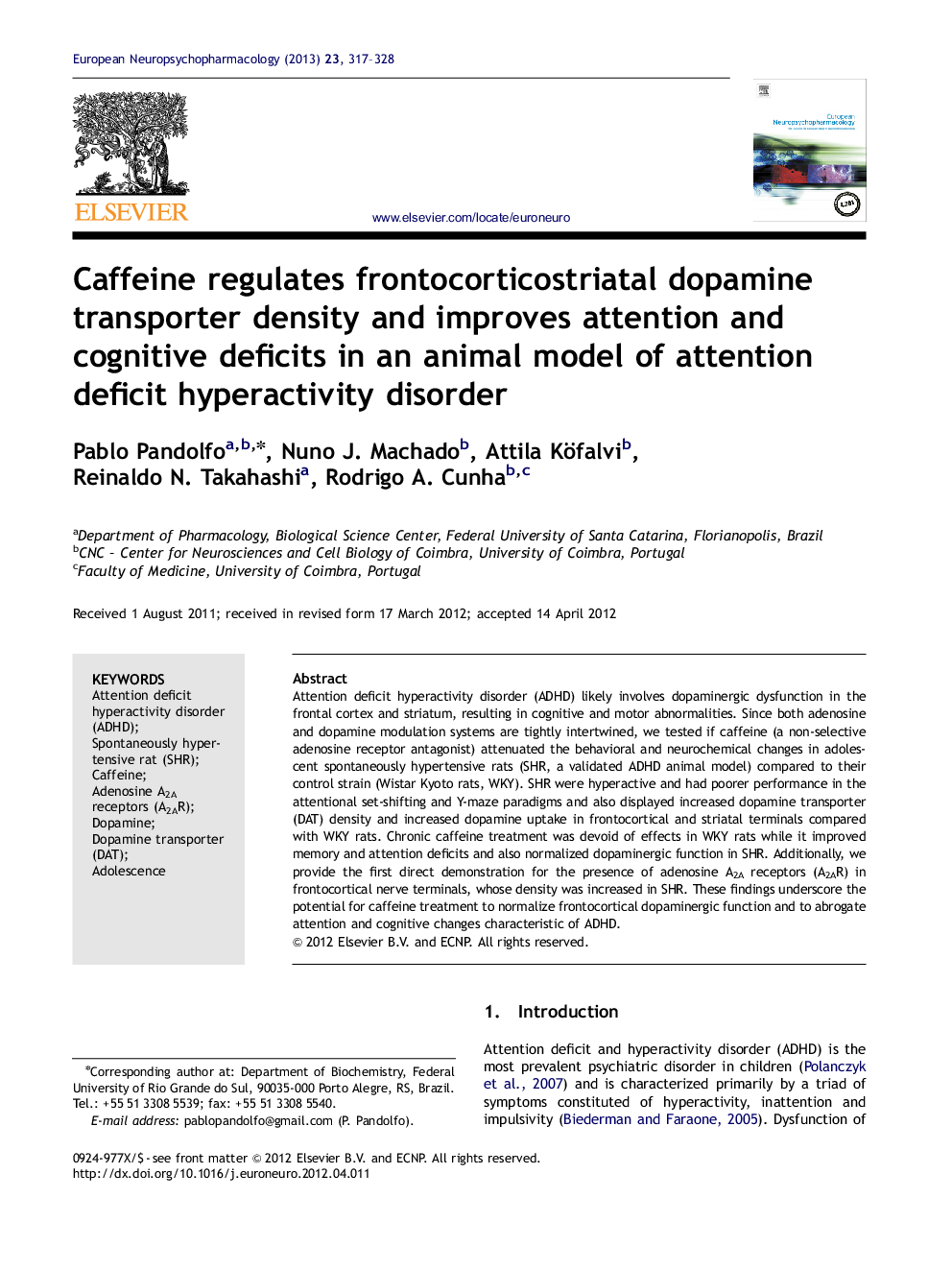| Article ID | Journal | Published Year | Pages | File Type |
|---|---|---|---|---|
| 319656 | European Neuropsychopharmacology | 2013 | 12 Pages |
Attention deficit hyperactivity disorder (ADHD) likely involves dopaminergic dysfunction in the frontal cortex and striatum, resulting in cognitive and motor abnormalities. Since both adenosine and dopamine modulation systems are tightly intertwined, we tested if caffeine (a non-selective adenosine receptor antagonist) attenuated the behavioral and neurochemical changes in adolescent spontaneously hypertensive rats (SHR, a validated ADHD animal model) compared to their control strain (Wistar Kyoto rats, WKY). SHR were hyperactive and had poorer performance in the attentional set-shifting and Y-maze paradigms and also displayed increased dopamine transporter (DAT) density and increased dopamine uptake in frontocortical and striatal terminals compared with WKY rats. Chronic caffeine treatment was devoid of effects in WKY rats while it improved memory and attention deficits and also normalized dopaminergic function in SHR. Additionally, we provide the first direct demonstration for the presence of adenosine A2A receptors (A2AR) in frontocortical nerve terminals, whose density was increased in SHR. These findings underscore the potential for caffeine treatment to normalize frontocortical dopaminergic function and to abrogate attention and cognitive changes characteristic of ADHD.
